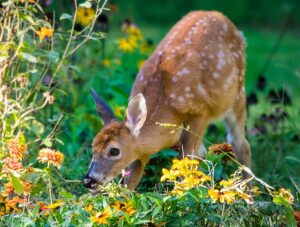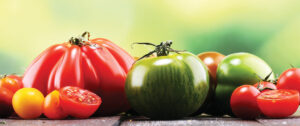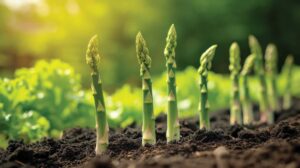 Without water, our plants could stop growing, stop blooming, produce teeny tiny little raspberries and peaches not worth much, go dormant or die. Of course, the latter response tends to be the most noticeable, though as they say, it’s a fine line between dormancy and death.
Without water, our plants could stop growing, stop blooming, produce teeny tiny little raspberries and peaches not worth much, go dormant or die. Of course, the latter response tends to be the most noticeable, though as they say, it’s a fine line between dormancy and death.
Even the earliest farmers, post-Garden of Eden, learned the fact of transporting water from Point A to Point B to make sure plants didn’t die.
For those of us on municipal water, we have to weigh the cost of the water bill with what happens to the plants. Those on wells have a tougher choice – watering the plants or flushing the toilet. And to some, it’s a difficult choice.
Granted, farmers need rain when the corn is tasseling and silking, and when the pods on the soybean are filling. Rain is not needed once the plants are drying down, which may be August this year if we base that assumption on the weather so far this year.
Of course, farmers need the rain to make a profit. Done. My father is now happy.
For gardeners, it’s a tougher call when water becomes a premium.
Here’s one suggestion — skip everything that really isn’t worth much. Annual flowers fall into that category. Sure, the marigolds and petunias look nice, but that’s all. You don’t eat them.
Next comes the lawn. Grass is pretty well just a thing of beauty or annoyance, depending on whether you like the green lush turf or have to mow it week after week after week after week. If it dies due to lack of water, it can be replaced in a matter of weeks or a couple of months.
Some of us might accept the argument annual flowers are more important than the lawn, but that’s one of those things to discuss over fermented hops or grapes.
Vegetables, gulp, are next, only because they can be replaced like annual flowers next spring. While you think, “I must water the tomatoes”, the cost may not be worth the expense. Local farmer markets make the expense almost too much. Sure, nothing tastes the same as tomatoes or green beans from your own garden, but after a couple trips to the farmers market, you may even forego planting a garden next year.
Fruit trees and grape vines are next. You’d be better off saving them before the raspberries and blackberries, which will produce in two years instead of three, four or five. Trees and vines are an investment. If we go through an extended dry period, you might even consider reducing some of the fruit on the plants by picking it before it’s ripe.
Shrubs are the next to the last, only because they’re smaller than the number one — the trees.
Trees are an investment. If you have to water something, even though you may mistakenly think they have roots to China, spend the effort at the tree’s dripline. Watering at the trunk only wets the trunk.
Choose the hardwood trees before the willows, poplars, cottonwoods, silver maples, and pin oaks. Sure, they are nice, but the sugar maple and white oaks are longer-term investments.
Of course, mulching with 2 to 4 inches of woodchips helps conserve some water. Watering in the morning and allowing it to slowly soak in the ground is the best.
David Robson is Extension Specialist, Pesticide Safety for the University of Illinois. drobson@illinois.edu






